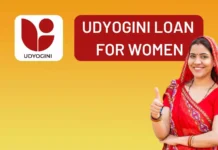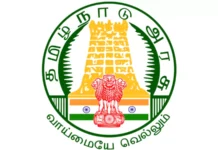Free Electric Sewing Machine
The Free Electric Sewing Machine Scheme is a program aimed at welfare and empowerment, initiated by the Government to assist women from economically disadvantaged backgrounds. The primary objective of this scheme is to provide free electric sewing machines to women aspiring to achieve self-sufficiency and generate a consistent income through tailoring and garment production. This initiative particularly aids impoverished, widowed, and differently-abled women, as well as those residing in rural and semi-urban regions who may lack other job opportunities. By offering electric sewing machines at no cost, the government seeks to enhance women’s social and economic status while fostering self-employment and entrepreneurship.
The implementation of the scheme is carried out through various state and local government agencies, including the Department of Women and Child Development and Rural Development offices. It is in line with broader national initiatives such as Atmanirbhar Bharat Abhiyan and the Skill India Mission, which emphasize empowering citizens through skill-based employment. The electric sewing machines provided under this initiative are user-friendly, energy-efficient, and well-suited for small-scale business activities. Beneficiaries can utilize these machines for sewing garments, school uniforms, embroidery, and other tailoring-related tasks, thereby enabling them to secure a sustainable livelihood.
To take advantage of the Free Electric Sewing Machine Scheme, eligible women must complete an application form. This form is typically accessible online via the official government website or can be obtained from the nearest Gram Panchayat, Municipality office, or District Women’s Welfare Office. Applicants are required to provide basic personal information such as their name, age, address, and contact details, along with necessary documents like an Aadhaar card, ration card, income certificate, and passport-sized photographs. Women from Below Poverty Line (BPL) families, widows, and those who have completed government-recognized tailoring or vocational training courses are often given priority.
Related Posts

Upon receiving the applications, local authorities meticulously verify the information to ensure that only qualified women benefit from the program. After verification, the chosen beneficiaries are notified through official channels, and the distribution of sewing machines occurs during special events organized by the local administration or through direct handover at specified centers. In certain districts, beneficiaries also participate in short-term training sessions focused on effectively operating and maintaining the electric sewing machines. These sessions cover stitching techniques, machine upkeep, and innovative tailoring methods that can enhance their business prospects.
The initiative has significantly transformed the lives of the women who have participated. Numerous women have successfully launched their own home-based tailoring businesses, taking on stitching orders for school uniforms, dresses, and various clothing items. Some have even collaborated with local shops and garment manufacturers, regularly supplying stitched products. This not only grants them financial security but also allows them to contribute to their family’s income and overall well-being. Over time, several beneficiaries have taken the initiative to train other women in tailoring, fostering a culture of skill-sharing and job creation within their communities.
The advantages of using electric sewing machines over traditional manual ones are numerous. They save time, require less physical exertion, and boost productivity. With electric machines, women can accomplish more tasks in a shorter period and manage a wider range of fabrics and designs. This capability enables them to accept larger orders and enhance their earning potential. Additionally, as these machines are straightforward to maintain and operate, they become long-term assets that continue to provide income for many years.
In addition to enhancing economic conditions, the initiative has also boosted the confidence and social standing of women. Many individuals who were once limited to domestic responsibilities have transitioned into small business owners, taking charge of their enterprises and making independent financial choices. This empowerment plays a crucial role in the overall advancement of society, as women are essential to both family and community development.
The government further promotes the formation of self-help groups (SHGs) among beneficiaries to encourage collective progress. These groups enable women to obtain extra financial support, share tailoring resources, and secure larger contracts for school uniforms or community events. This collaborative growth model ensures that the advantages of the scheme benefit a broader population and that women assist each other in achieving financial autonomy.
Website Link
To sum up, the Free Electric Sewing Machine Scheme represents a significant stride toward empowering women, developing skills, and fostering economic inclusion. It not only equips individuals with a means for generating income but also paves the way for a life filled with dignity, self-respect, and independence. By concentrating on practical, skill-oriented opportunities, the scheme aids women in converting their abilities into sustainable livelihoods. This initiative exemplifies how government welfare programs can bring about enduring positive transformations in the lives of everyday citizens, promoting self-sufficiency and social advancement in communities throughout Karnataka and beyond.




























